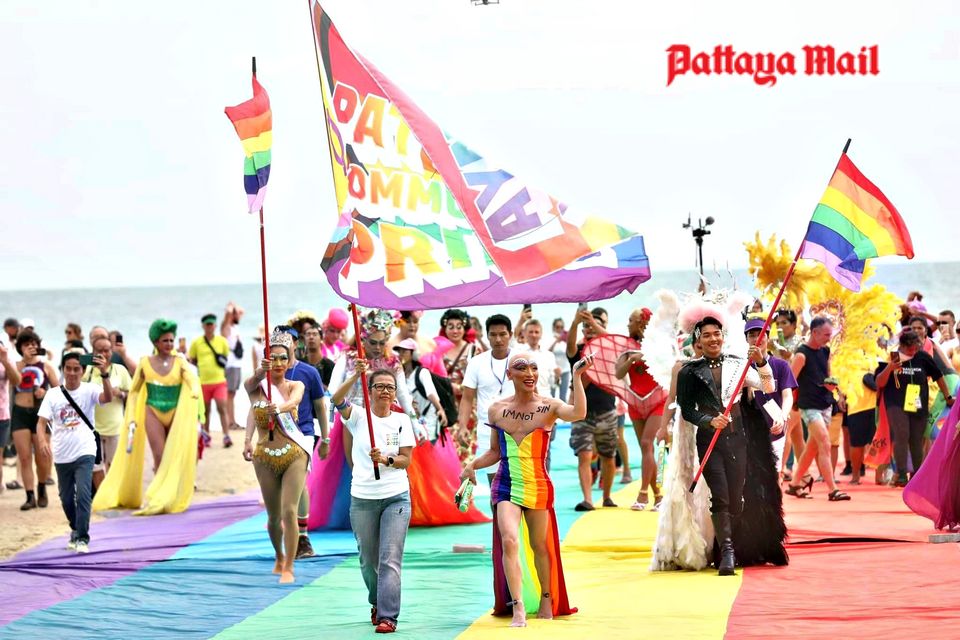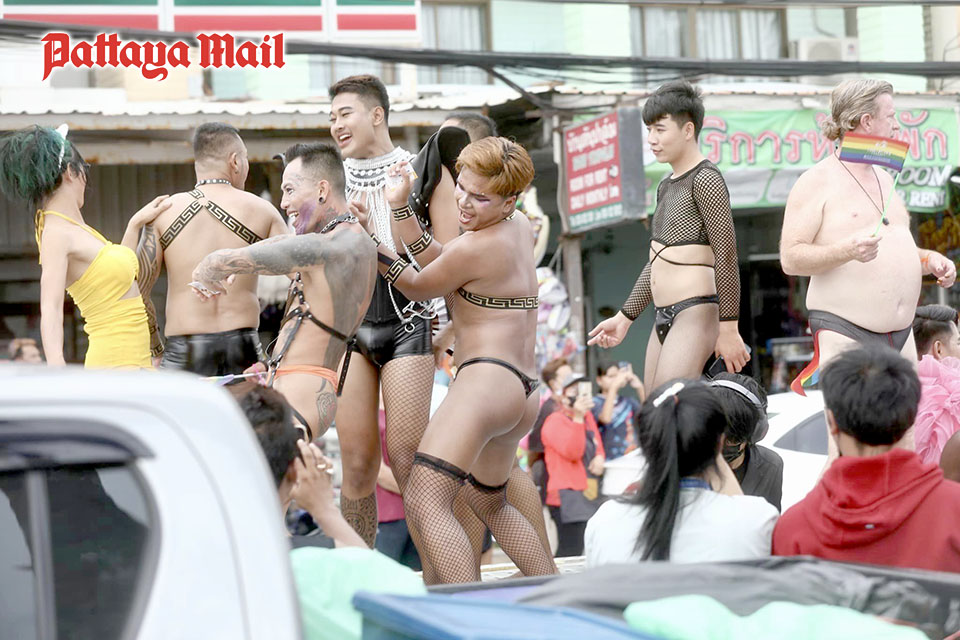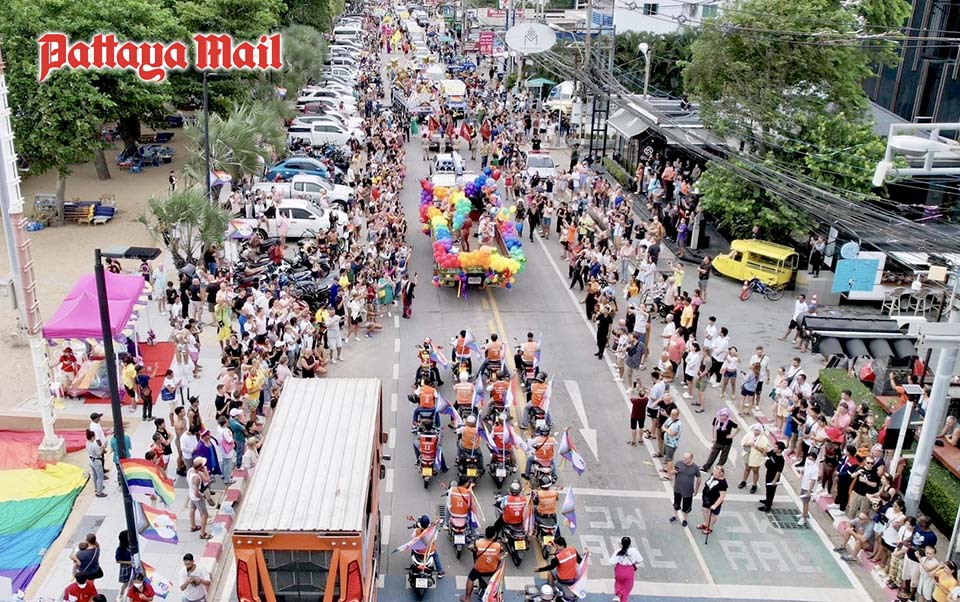
The Jomtien pride carnival last weekend displayed the resort’s sexual diversity in all its splendor, not to say feathers. Hundreds of mainly young Thais thronged the beach road on Saturday afternoon for three hours, narrowly missing the earlier rains. Assembled were soberly dressed enthusiasts, drag queens, amateur cabaret stars, staff from bars and massage parlors, often wearing home-made glitzy costumes that left little to the imagination. Foreigners mostly kept away from the floats, although a few waved a rainbow flag or cheered from the sidelines.
Political input, as usual, was low key. There were signs and posters embracing sexual diversity, promoting marriage equality and an end to traditional gender norms. The only complaint came from a cross-dressing star who said the high wind was making it difficult to hold her placard aloft. The semi-radical Move Forward party, which swept the Pattaya area in the recent general election, has promised early legislation to introduce single-sex marriages but the demonstrators avoided promoting politics or the popular MF leader Pita Limjaroenrat. Unlike Bangkok, controversy is not usually the Pattaya style.

Saturday evening (sponsored by SWING) was devoted to parties, cabarets and special social events in Jomtien Complex: a street of bars, massage options and restaurants which is the hub of fun city’s gay nightlife alongside competitor Boyztown in central Pattaya. Post-event social media were swamped by thousands of camp photos and happy comments, mostly placed by Thais in their own language. The pride event’s main achievement was doubtless to encourage group solidarity, although it also proved to the general public (as if they didn’t know) that sexual diversity is an indispensable element of this seaside tourist resort, based on large international arrivals.
A few farang internet warriors recorded their warm support, but most remained silent. A handful of skeptics took to Facebook to describe parade participants as mental patients on the loose, or to comment it was no wonder that Thailand was becoming a super-aged society. The English press, which revelled weekly in Pattaya sex tales 20 years ago, appears mostly to have ignored the event. The newspapers over there have lost interest in Pattaya unless there’s a foreign pedophile arrest or a Brit has been injured in an accident and can’t pay the bill. None the less, one popular daily did publish short story of a real woman who was selected as a cabaret show girl in a gay club. That’s entertainment.

By Monday morning, life was back to normal, or as normal as it gets in Pattaya. A few rainbow flags still hung from lampposts and a huge public TV screen near Jomtien Complex still carried the warm congratulations of City Hall and hopes for an equal future. But the caution is that the pink pound has always been a huge cash market in international Pattaya. As resort Pattaya changes in so many directions, whilst the number of Brit/European, American and Australian visitors and retiree expats declines relative to size, the question is how much longer the traditional gay scene catering for single men can survive. As the former cabaret star Eggz Benedict asked, “Why do so many farang customers these days have bald heads?”





